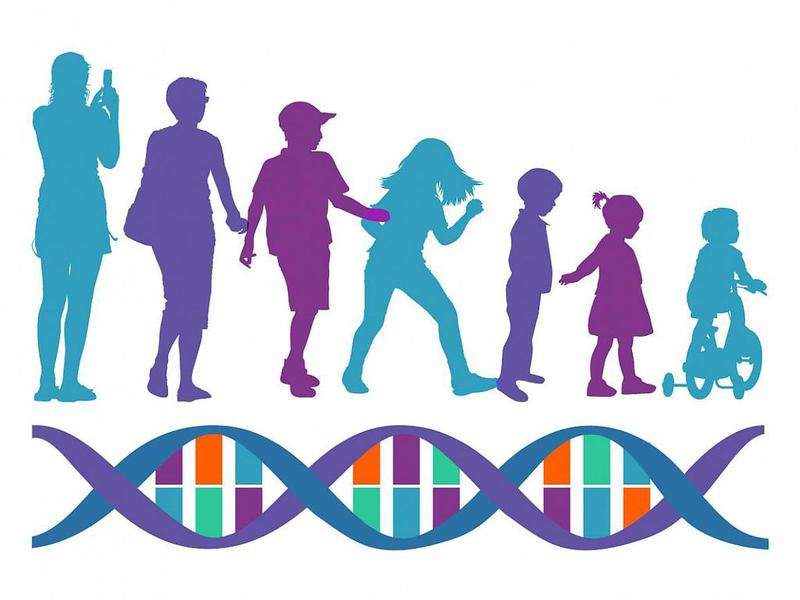

NCI and COG initiated paediatric Phase II trial for precision cancer drugs
The National Institutes of Health’s (NIH) unit National Cancer Institute (NCI) and the Children’s Oncology Group (COG) initiated patient enrolment in a paediatric Phase II clinical trial to evaluate targeted cancer medicines.
The NCI-COG Pediatric Molecular Analysis for Therapy Choice (Paediatric MATCH) trial is designed to study the efficacy of more than eight targeted therapies in children and adolescents suffering from solid tumours with specific genetic mutations.

Discover B2B Marketing That Performs
Combine business intelligence and editorial excellence to reach engaged professionals across 36 leading media platforms.
Each investigational candidate will target a predefined set of genetic mutations and aim to match the molecular abnormalities in a patient’s tumours.
AstraZeneca’s Tagrisso improved progression-free survival in Phase III NSCLC trial
AstraZeneca reported positive results from the Phase III FLAURA trial of Tagrisso (osimertinib) to treat patients with locally advanced or metastatic non-small-cell lung cancer (NSCLC).
The trial has met the primary endpoint of statistically significant and clinically meaningful progression-free survival (PFS) in previously untreated patients who were epidermal growth factor receptor mutation (EGFRm) positive.
Tagrisso is an irreversible EGFR tyrosine kinase inhibitor (TKI) currently being developed to inhibit EGFR sensitising and EGFR T790M resistance mutations.

US Tariffs are shifting - will you react or anticipate?
Don’t let policy changes catch you off guard. Stay proactive with real-time data and expert analysis.
By GlobalDataOxford University set to investigate AZD1775 for bowel cancer

The UK's University of Oxford is set to investigate AstraZeneca’s experimental drug AZD1775 in a new clinical trial for treatment of patients with bowel cancer.
AZD1775 is reported to inhibit WEE1 protein and destroy mutations in cancer cell’s SETD2 gene, which was discovered by Oxford professor Tim Humphrey.
The CRUK / MRC Oxford Institute for Radiation Oncology and scientists at AstraZeneca have worked together to develop a translational potential of a test designed to identify the presence or absence of SETD2 to allow targeted therapy with AZD1775.
Aimmune began patient enrolment in European Phase lll trial of AR101 for peanut allergy
US-based Aimmune Therapeutics began enrolling patients for the European Phase lll ARTEMIS (ARC010) clinical trial of its investigational biologic oral immunotherapy, AR101, to treat peanut allergy.
AR101 is designed for the de-sensitisation of patients with peanut allergy.
Under the AR101 trial in Europe measuring oral immunotherapy success (ARTEMIS) study, Aimmune Therapeutics will enrol around 160 peanut-allergic children and adolescents aged four to 17 at various sites in several European countries.
Researchers discovered South African child in HIV remission for nine years

Scientists at the Ninth International AIDS conference on HIV Science held on 24th July in Paris reported that a South African child diagnosed with HIV at birth has been healthy and in remission for approximately nine years without any treatment.
The University of Witwatersrand Perinatal HIV Research Unit paediatric clinical trials head Dr Avy Violari treated the child with antiretroviral treatment (ART) for 40 weeks followed by continuous monitoring, reported CNN.
Analysis of the nine year old’s blood in late 2015 showed HIV remission, while tests of samples from his infancy are reported to indicate that the remission has occurred after the suspension of the treatment.
Boehringer Ingelheim initiated interchangeability trial of BI 695501 and Humira
Boehringer Ingelheim initiated patient enrolment in an interchangeability clinical trial (VOLTAIRE-X) of its product candidate BI 695501 and the US-marketed formulation of 40mg/0.8mL Humira.
BI 695501 is an adalimumab biosimilar candidate accepted for regulatory review by the European Medicines Agency (EMA) and the US Food and Drug Administration (FDA).
Humira is the trade name of adalimumab that features tumour necrosis factor (TNF) inhibition, anti-inflammatory properties and is a biologic medication indicated for the treatment of rheumatoid arthritis, psoriatic arthritis, ankylosing spondylitis, Crohn's disease and ulcerative colitis among others.
eTheRNA initiated Phase Ib trial of TriMix-MEL for metastatic melanoma

Belgium-based cancer therapies developer eTheRNA Immunotherapies initiated a Phase Ib clinical trial of TriMix-MEL (ECI-006) to treat patients with metastatic melanoma.
TriMix-MEL is an investigational immunotherapy that consists of three protein-encoding mRNAs, as well as mRNAs that encode five melanoma-associated antigens.
The Phase Ib trial will investigate the immunogenicity, safety and tolerability of TriMix-MEL in-vivo over 14 weeks in stage IIc/III/IV melanoma patients who show no evidence of disease following surgical tumour removal, but are at risk of recurrence.
Alnylam and Sanofi commenced Phase III programme for haemophilia drug
Alnylam Pharmaceuticals and Sanofi Genzyme commenced the Phase III clinical programme (ATLAS) of RNAi therapeutic fitusiran in patients with haemophilia A or B, with or without inhibitors.
Fitusiran is an investigational, subcutaneous, once-a-month therapeutic candidate that targets antithrombin (AT).
Designed to assess the safety and efficacy of fitusiran, the ATLAS programme will include around 250 subjects receiving prophylactic therapy in three separate clinical trials at more than 100 sites.
Prexton began Phase II trial of Foliglurax to treat Parkinson’s disease
Swiss biopharmaceutical firm Prexton Therapeutics began a Phase II clinical trial (AMBLED) of Foliglurax for the treatment of patients suffering from Parkinson’s disease (PD).
Foliglurax is an investigational therapeutic candidate designed to trigger a new compensatory neuronal system, which induces a glutamatergic system target called mGluR4.
The drug candidate is expected to treat PD’s motor symptoms, including resting tremour, muscle rigidity (off-time) and uncontrolled movements known as dyskinesia.
Daiichi Sankyo reported top-line results from Phase III trials of mirogabalin
Japanese pharmaceutical firm Daiichi Sankyo reported top-line results from its Phase III NEUCOURSE and ALDAY clinical trials of mirogabalin to treat post-herpetic neuralgia and fibromyalgia.
Mirogabalin is an oral therapeutic candidate that selectively binds to the alpha-2 delta-1 (α2δ-1) sub-unit of calcium channels in nervous system areas that are involved in pain transmission and processing.
The NEUCOURSE trial met the primary efficacy endpoint of decreasing the weekly average daily pain score (ADPS) from baseline to week 14, while the ALDAY clinical trials did not meet the endpoint of a decrease in the weekly ADPS score by week 13.





